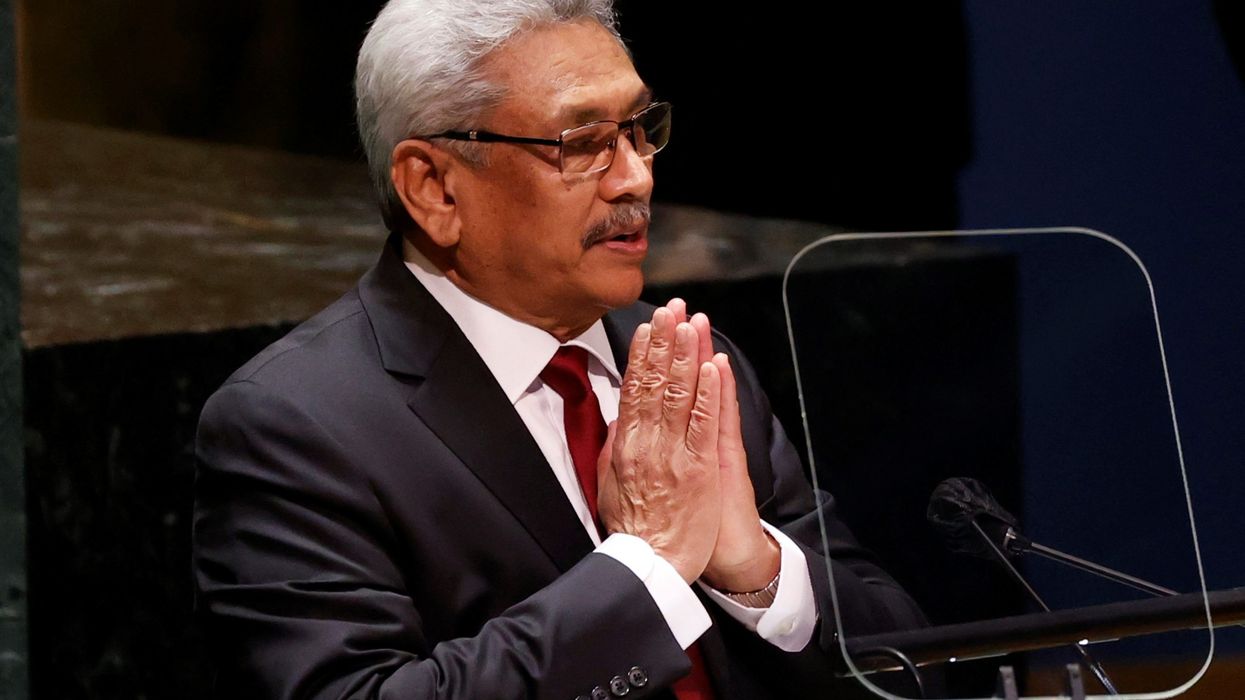SRI LANKA'S president Gotabaya Rajapaksa prorogued parliament for one week and left for Singapore on an unscheduled visit on Monday (13).
There was no immediate comment from the government on Rajapaksa's decision to suspend proceedings for a week.
Parliament, which ended its sessions last Friday (10), was originally set to convene on January 11. It will now convene on January 18.
Rajapaksa, through an extraordinary gazette notification dated last Sunday (12), suspended the assembly.
Hours after proroguing parliament, Gotabaya, 72, left for Singapore on an unscheduled visit. Officials said he was there on a private visit, believed to be for health reasons.
Two key issues billed for discussions during Monday's (13) cabinet meeting would not be taken up, energy minister Udaya Gammanpila told reporters.
The weekly cabinet meeting was to discuss the possibility of Sri Lanka going for a bailout package from the International Monetary Fund (IMF) in view of the severe foreign currency crisis.
Sri Lanka's foreign reserves have slipped to the lower level to suffice only a month's imports.
The cabinet was also scheduled to discuss a controversial power deal with a US power company, with government allies expressing their opposition to the proposal.
The president's action means all standing committees in parliament would have to be reconstituted and reconvened.
Two oversight committees on public enterprises and public accounts have been pointing to many irregularities in running state institutions.
The assembly session dates and timings are set by political party leaders represented in Parliament in concurrence with the speaker of the house.
However, the president has the power to prorogue parliament under Article 70 of the Constitution.
During the prorogation, the speaker continues to function, and the members retain their membership even though they do not attend meetings of parliament, according to the Colombo Gazette newspaper.




